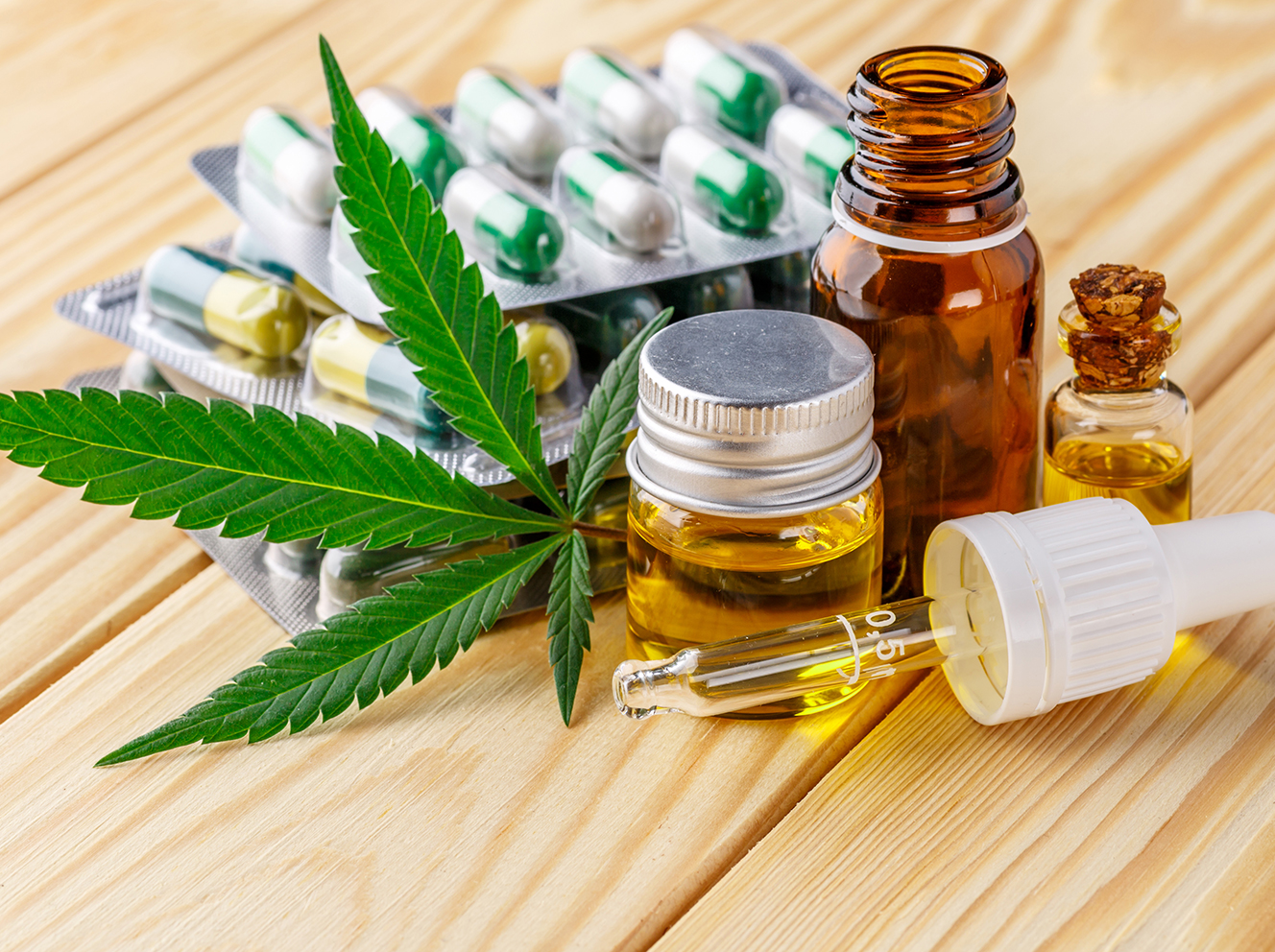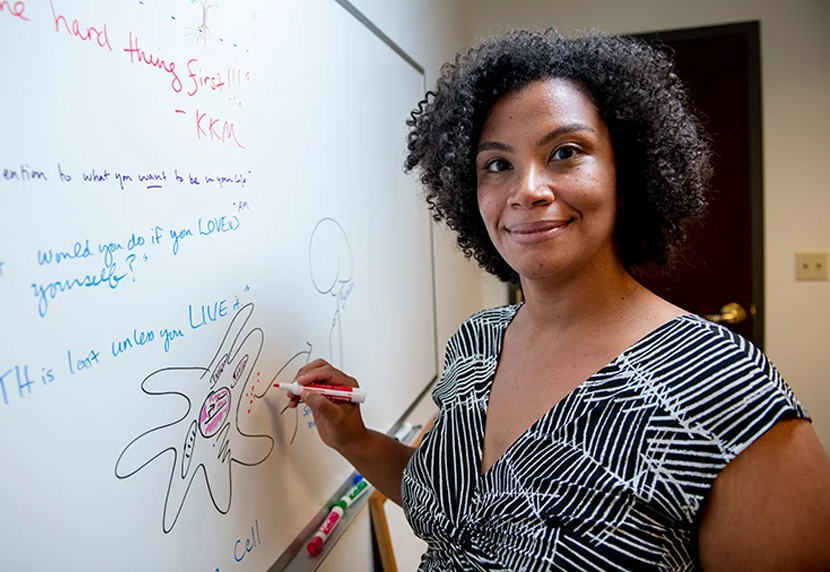In 2012, Massachusetts voters passed a ballot measure to legalize cannabis for medical symptoms, followed four years later by a successful vote for recreational cannabis. The intervening years translated into an explosion of products — vape pens, oils, edibles and much more — available for purchase, which many people chose to take for their stated medicinal properties.
The research of Jodi Gilman, PhD, director of neuroscience at the Center for Addiction Medicine at Massachusetts General Hospital, investigates those claims. She has found that because cannabis is sold at shops, and not regulated like traditional pharmaceuticals, there are many unknowns: doctors are unsure of what is in cannabis products and whether they have true medicinal effects. Dr. Gilman is interested in their neurological impacts.
“There’s a huge need for research to understand the effects of cannabis products on the brain,” Dr. Gilman says. “These products aren’t going away — they’re going to become more potent, cheaper and more widespread — and I worry about repeating the mistakes of the tobacco industry. People didn’t know cigarettes were causing lung cancer and cardiovascular disease, and tobacco companies brushed research under the rug. I’m afraid we’ll find out things about how these new cannabis products affect the brain and it’ll be too late.”

Exploring the Impacts of Cannabis
Dr. Gilman began her career in alcohol research, measuring activity in the nucleus accumbens and caudate — the brain’s “reward regions” that often activate to pleasurable stimuli like pleasant images and winning money — when subjects consumed alcohol. She then began studying how cannabis affects the brains of adolescents and young adults, which led to her current work of researching how cannabis use affects the brain among populations with other mental health disorders.
In a 2022 study, Dr. Gilman explored the impact of cannabis on people with anxiety, depression, insomnia and pain. To simulate real-world conditions, patients bought their own cannabis products at dispensaries, smoke shops and other retail locations. Her study included a urine analysis, with thorough panels that tested for 16 different cannabinoids. The findings: cannabis had no impact on anxiety, depression and pain. It helped insomnia a little, but that small benefit came with side effects. And many research subjects showed no cannabinoids in their urine.
“This isn’t the way medicines are usually prescribed,” Dr. Gilman says. “Typically, your doctor tells you what to take and when, and these approved medicines have a known side effect profile. With cannabis, people get a card, and are on their own. People are buying these products thinking they might be helpful, but who knows what’s in them?”
Dr. Gilman’s most recent study takes the unregulated nature of cannabis into account, as she has obtained FDA-approved cannabidiol (CBD) medication — approved to treat epilepsy — to see if the substance decreases inflammation in the brain and spinal cord. Patients undergo a positron emission tomography (PET) scan, are then randomized to CBD or placebo for four weeks and are scanned again to see the extent to which there are changes in neuroinflammation. Study results are expected in 2025.
“CBD is available everywhere, but we have no idea how it works,” Dr. Gilman says. “If we found out that CBD reduced neuroinflammation, that would be very important. This would be the first human trial of CBD for pain with a proposed mechanism. This is where we need to be going with these studies.”
Wrangling the Wild West
As she ventures further into new frontiers in cannabis research, Dr. Gilman wants to study whether cannabis is effective with helping patients reduce their dose of chronically prescribed opioids for non-cancer pain. “If that were true, it would be great, but we need to study whether cannabis is helpful or harmful,” she says. And, as more people use store-bought cannabis products to relieve underlying conditions, she encourages doctors to ask patients about cannabis use and help guide them toward established treatments that could address their illnesses.
“We should be proactively asking patients if they’ve tried cannabis or are thinking about using for their condition,” Dr. Gilman says. “For medical and psychological conditions with proven treatments, we should be steering people toward those treatments. Cannabis was legalized through ballot initiatives and state legislatures — not through the approval processes you would expect for other medications.”
To read more about Dr. Gilman’s research, click here. To support her work or learn more, please contact us.





